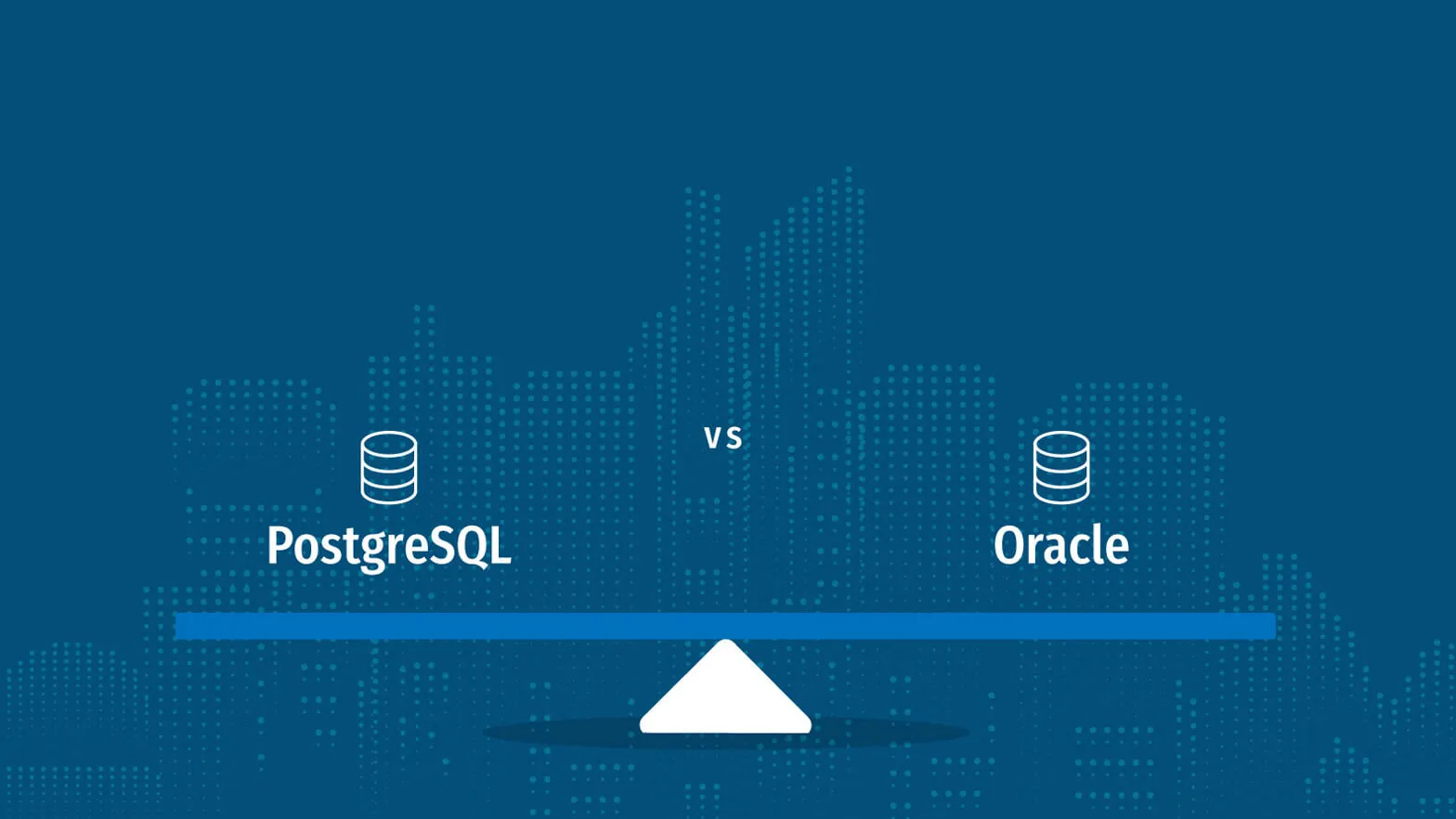PostgreSQL vs. Oracle: Let’s Compare

Deciding on a Database Management System? Let us help you make an informed decision.
In this blog, we will help you discover the key differences between two of the most accepted Database Management Systems- PostgreSQL & Oracle
Database Management Systems are primarily categorized as open-sourced and closed-source systems. Open-source Database Management Systems can be accessed and modified by anyone free of cost, unlike closed-source Database Management Systems that are private and inaccessible to everyone except developers and authorized parties. PostgreSQL is an open-sourced DBMS, whereas Oracle is a closed-source DBMS.
Let us help you get a basic understanding of the two DBMS before we delve into the technicalities.
PostgreSQL: Developed by the PostgreSQL Global Development group on 8 July 1996, PostgreSQL is a free open-source relational object-oriented database management system developed by volunteer developers worldwide, emphasizing extensibility and SQL compliance.
Oracle: Developed by Larry Ellison and Bob on 16 June 1977, Oracle is a licensed commercial relational database management system. It is the first database designed for grid computing.
Let us now compare PostgreSQL vs. Oracle, outlining the differences in these SQLs database functionalities, scalability, security, support, costs, etc.
Functionality
In terms of functionality, the edge PostgreSQL has over Oracle is its ever-evolving and free-of-cost availability. Oracle requires complex ongoing administration. The complexity increases the risk of error which can lead to critical mistakes. PostgreSQL has four levels of possible transactions: Read uncommitted, Read Committed, Repeatable Read & Serializable, whereas Oracle has higher transactions per second. Even though Oracle is more functional than PostgreSQL, it comes with a price.
Scalability
PostgreSQL is more scalable as it has open-source characteristics. However, for higher scalability in Oracle, one has to spend more on infrastructure to carry out operations. PostgreSQL databases can accommodate enormous volumes of data & incorporates cluster-based storage solutions that allow free expansion. Oracle is better in terms of maintaining data integrity with redo logs. Oracle Enterprise is recommended for high workloads, being highly scalable but costly.
Updates
New versions of PostgreSQL with updates are released every year, and minor versions with bug fixes are released every quarter. The release dates are announced in advance to ensure the user’s convenience. On the other hand, Oracle releases new versions every 2-4 years.
Security
PostgreSQL allows developers to set permissions by offering roles and inherited roles and supports native SSL to assist in encryption server communications. It also provides additional access controls through SE-PostgreSQL relied on SELinux’s security policy.
In terms of security, Oracle has more robust security features. Oracle provides advanced security features that are accessible by paying an additional cost. Oracle offers features like security assessments, data protection, auditing & monitoring. It also allows exceptional isolation solutions between pluggable databases and independent key encryption management.
Support
PostgreSQL has an active community that offers free online support through blogs, emails, code & other channels. There is no helpline number to call during emergencies. You can hire a developer at an affordable price. Third-party support is also available.
Oracle has a helpline number available for emergencies. However, hiring developers as support for hardware and software packages costs approximately 22% of their licensing fees.
Compatibility & Replication
PostgreSQL is compatible with relational databases, including Oracle, while Oracle infrastructure does not offer compatibility with open-source RDBMS. PostgreSQL supports native streaming replication & logical replication, while Oracle supports Oracle GoldenGate, a licensed application for data replications of all kinds.
Partitioning
PostgreSQL supports declarative partitioning, whereas Oracle supports general horizontal partitioning supported by all RDBMS.
Cloud Deployments
PostgreSQL can be deployed on any cloud provider via PostgreSQL hosting solutions available, whereas Oracle can be deployed only on Oracle Cloud & top of the line cloud providers.
Extensions
PostgreSQL offers innumerable open-source extensions, including PostGIS, CitusDB, pg_repack, etc., whereas Oracle only offers commercial add-ons available for an additional license fee.
Availability
PgPool in PostgreSQL Enterprise edition provides superior functionality. It adds nodes dynamically through horizontal scalability options. Databases can be shared across servers via Oracle Real Application Clusters. Real Application Cluster is a built-in feature in Oracle.
Migration Tools
PostgreSQL offers advanced tools to support migration from Oracle, the Ora2PG enables the migration of large projects, and Oracle-FDW moves schemas and data. Orafce ensures function compatibility while PGREPLAY is used to stress test databases. Even though moving Oracle Databases can be time-consuming, Third-party tools like AWS Schema Conversion Tool are available for migrating code.
Oracle’s Database Replay & SQL Performance Analyzer in Real Application Testing allows analysis and testing of migration requirements prior to the move. Migration is easier through preparation tools and planning that reduce the time and resources required.
Backup & Recovery
The data recovery process for PostgreSQL is simple. It effectively replaces directories, subdirectories & the WAL files. Oracle’s data recovery process is comparatively complex. In PostgreSQL, PGdum and pg_basebackup are reliable database backup solutions. In Oracle, RMAN provides efficient database backup.
Cost
PostgreSQL has an advantageous edge of being highly cost-effective. It has no licensing costs. On the other hand, Oracle has separate licenses that you need to purchase to use its specific features. Most of the advanced features Oracle provides are available only in the enterprise edition, which costs.
Supported Operating Systems
PostgreSQL: AIX, HP-UX, Linux, OS X, Solaris, Windows, z/OS
Oracle: FreeBSD, HP-UX, Linux, NetBSD, OpenBSD, OS X, SolarisUnix, Windows
Supported Languages
PostgreSQL: C, C#, C++, Clojure, Cobol, Delphi, Eiffel, Erlang, Fortran, Groovy, Haskell, Java, JavaScript, Lisp, Objective C, OCaml, Perl, PHP, Python, R, Ruby, Scala, Tcl, Visual Basic
Oracle: .Net, C, C++, Delphi, Java, JavaScript (Node.js), Perl, PHP, Python, Tcl
PostgreSQL and Oracle both have their distinct advantages that can help you enhance your business.
If you want to know more about the two and which will suit your business best, speak with our experts now! Abaca Systems has a proficient team of technologically sound developers who can understand your business goals and help you make the right choice.
